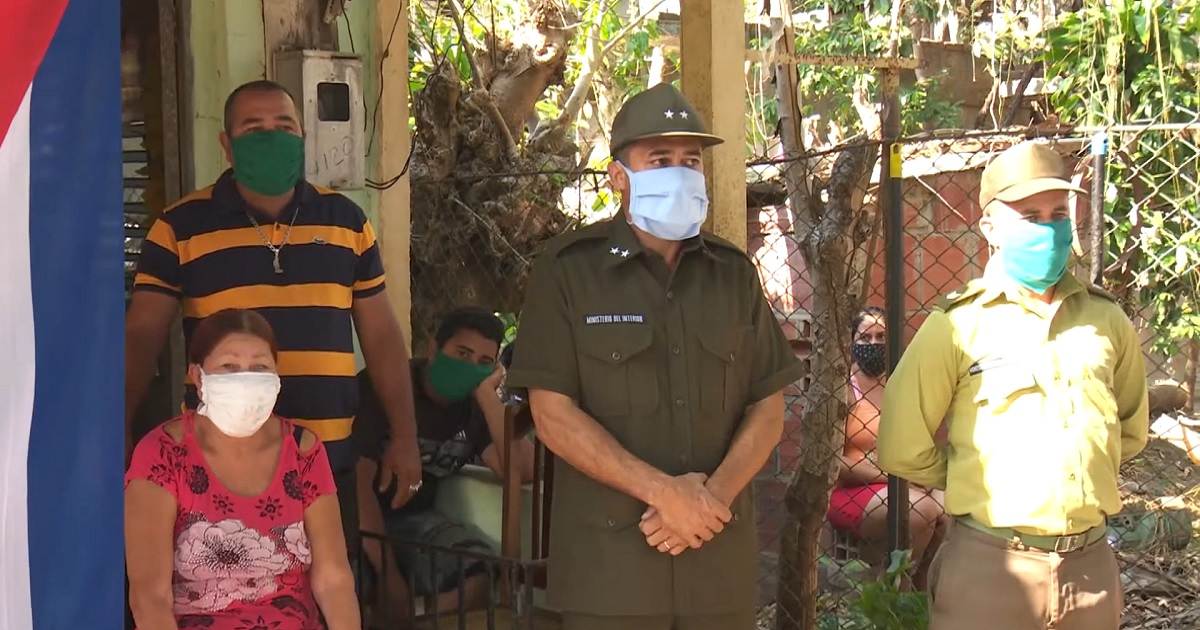
Cuban authorities arrested three alleged thieves who posed as health workers to steal 186 thousand pesos from a woman in the city of Bayamo, Granma, on April 2.
The perpetrators took advantage of the context on the Island due to the coronavirus, which involves health investigations in homes and visits by medical personnel to them.
They showed up at the old woman's house carrying a false identity from the Ministry of Public Health (MINSAP), which they used to enter María Naranjo's home, in the Bayamese community of Barrio Azul, early in the morning. One of them was dressed in a doctor's coat and the other two in uniforms from the anti-vector campaign against the Aedes Aegypti mosquito.
Then they violently attacked Naranjo and gagged her, broke the safe and withdrew the aforementioned sum, indicates the local official press. When they left, Naranjo was able to crawl to the phone and call the local doctor, who would find her with very high blood pressure.
In statements to CNC TV, the doctor explained that she also had high blood sugar, as she was a hypertensive, diabetic person with heart disease. As he explained, the community's own residents launched a search for the suspects.
Captain Yurisbel Ponce, Head of the Provincial criminal investigations unit, stated that, as a result of the incident, 4 subjects had been arrested, now awaiting trial while the investigations continue.
The arrest allowed the officials of the Ministry of the Interior to hold a political event with readings of messages and a flag of the July 26 movement in the background, a detail noted by journalist Rolando Nápoles on his Twitter account.
“It is excellent that they capture the thieves and that they return to María Naranjo in Bayamo the 186 thousand pesos that she says they stole from her. But doing this act with police and the July 26 flag included is crude media propaganda in times of coronavirus,” said the communicator through the social network.
“And when they turn off the cameras, they're going to find out where he got the money from. Could it be "illicit enrichment"?" comments one user.
“They don't miss the opportunity. But there are cases where leaders have stolen thousands of dollars from the people and everyone knows about it. Neither the police nor the party echo that, they silence him and the leader continues to steal the position by hand, he is a worthy example of that,” says another, whose last reference is to the Cuban ruler Miguel Díaz-Canel.
"Pathetic. The police are there for that and you don't have to do 1 act every time they do their job. “That is just to improve the deteriorated image of the repressors,” says a third user.
On the other hand, the usefulness of medical investigations to identify cases of coronavirus has been questioned by medical students, who not only question the positive nature of the results in terms of stopping the outbreak, but also worry about the health of themselves by exposing themselves to contagion during the investigations.
In recent days, the University of Medical Sciences of Holguín informed its students of the reprisals that could be applied to them. if they refused to carry out health investigations in the territory.
A source commented that the university management had issued an official statement in which it stressed that those who did not participate in the investigation ran the risk of failing and losing the right to expire the current academic year.
From social networks, a Cuban student and activist drew attention to the matter.
"I think we are not fulfilling our function, people hide symptoms from you, there are no good action protocols from the moment you report patients with respiratory symptoms, elderly people who live alone, etc., until something is done," he explained.
“These are times when it is better to be at home (as the rest of the population is told) because we are large groups of students in the streets, gathered in places where there are already positive cases and at the end of the day we return to our homes where we also have family , the elderly, people in risk groups,” he added.
A few days ago, the Cuban government announced the launch of an application called "Virtual Investigator", which was prepared by the University of Informatics Sciences (UCI), in order to collect information about the health status of the population.
Until this Saturday, the MINSAP confirmed 52 new cases of coronavirus on the island, so currently The accumulated number of infected people amounts to 1,337 since the first patient was detected in the country. In addition, there are 51 deaths in Cuba from COVID-19.
What do you think?
COMMENTFiled in: